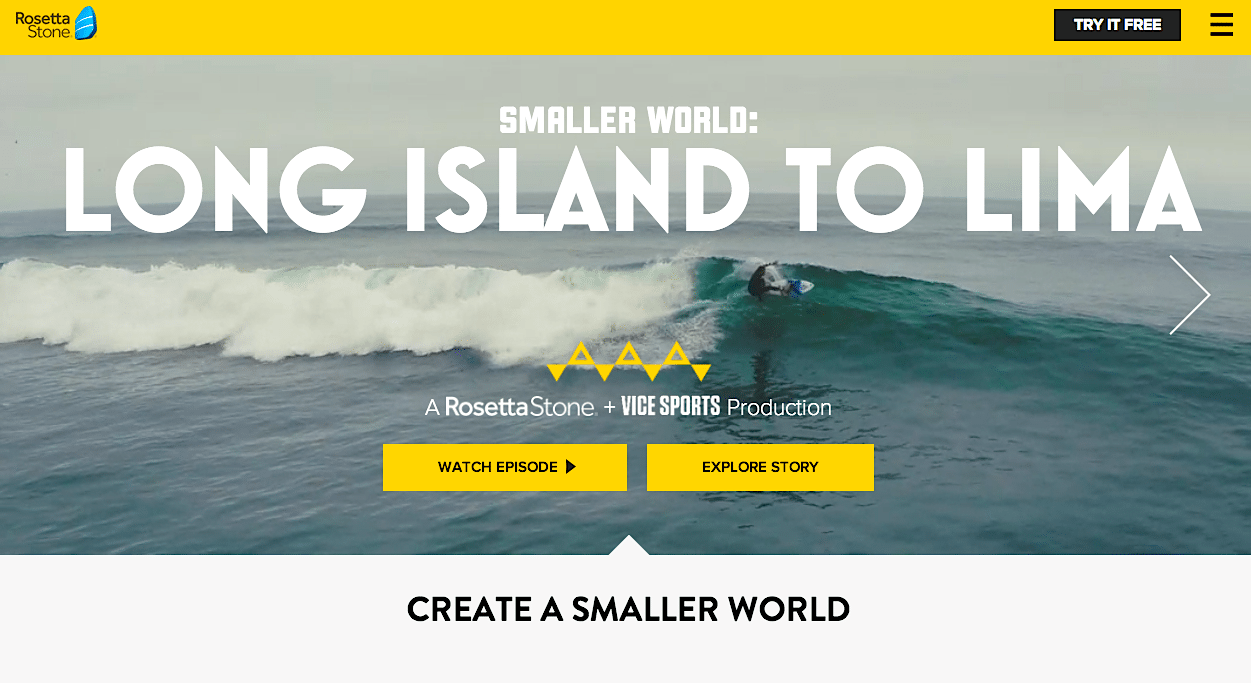Rosetta Stone Turns to Vice to Reinvigorate Its Language Education Brand

Skift Take
Rosetta Stone, arguably the most well-known language learning software in the game, is in the midst of a marketing rebirth.
Founded in 1991, the product was long marketed as the most effective self-teaching tool for travelers and diplomats, but it has recently started to face real competition from a number of startups -- like Duolingo -- that make the process more intuitive and more fun for users.
In what looks like an attempt to recapture a younger customer, the company, in addition to several core product changes, is running several campaigns that rebrand its service as a step towards having deeper adventures -- something that aligns well with today's experiential mindset.
The first element of the long-term campaign features videos that show young Americans following their sporting passions to a new part of the world. Rosetta Stone teams up with Vice Sports for the videos bringing the production company’s edgy, documentary-style intimacy to the campaign.
In the first video, Rosetta Stone sends NYU student and soccer player Colm to Berlin to watch the World Cup, play soccer and, of course, party with locals. The company then sends an amateur New York surfer Balaram to Lima to surf with some buddies and try to pick up ladies. The protagonists in each video are new to the respective languages of the destination and use Rosetta Stone before and during their trips.
Alongside the video campaign, Rosetta Stone is also testing out a new tone on Instagram. It’s hosting a contest in which followers post photos based on a weekly theme for the chance to win a Rosetta Stone subscription.
The contest has so far called for selfies with a sign saying hello in a foreign language, a foreign dish pic, and a photo of someone on a journey.
The campaign can at times tread into questionable territory with Instagram posts like the one below and video clips focused on American guys trying to pick up local ladies with their new language skills.
The brand has to be careful to not alienate some customers while pleading its case to others.
Millennials; however, account for the majority of spending on language learning products, explains Kelly Poling, Rosetta Stone's vice president of consumer marketing and strategy.
"We realized that we needed to do a better job of telling our brand story in a language that resonates with this audience," she explains while conceding that, as an established brand, Rosetta Stone has a certain amount of responsibility to not turn off its current customers.
"I think we’re trying to walk a fine line," says Poling. "Marketers need to come to grips that younger audiences are very sophisticated customers."
Younger Competition
Rosetta Stone acquired one such competitor Livemocha for $8.5 million in 2013 and then quietly fired 16 percent of its workforce and closed all remaining mall kiosks.
Startups like Duolingo made education an app game and put it directly on users’ smartphones while language translation apps like VerbalizeIt and Linqapp made it so some travelers didn’t have to learn a language at all.




